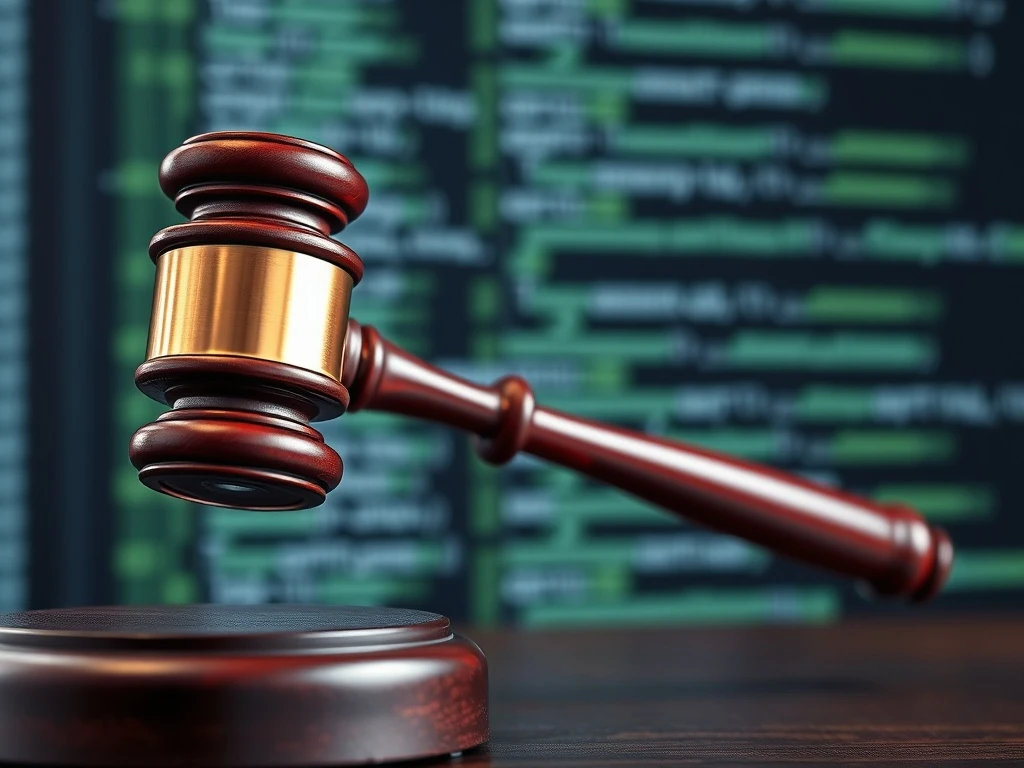Roman Storm’s Crucial Legal Defense Fund Sees Urgent Influx Amid Retrial Preparations

The cryptocurrency community faces a pivotal moment. **Roman Storm**, a key developer behind the privacy-focused protocol **Tornado Cash**, now sees his legal defense fund swell significantly. This surge in donations follows a partial verdict and the looming possibility of a retrial. The ongoing case highlights significant concerns for **open-source developers** and the future of **digital privacy** in the blockchain space.
Roman Storm’s Legal Battle: A Crucial Turning Point
Donations to **Roman Storm**, the embattled software developer, increased notably after Wednesday’s partial verdict. His legal team now prepares for a possible retrial. A jury found Storm guilty of running an unlicensed money transmitter. However, the jury was deadlocked on two of the three counts against him. This inability to reach a unanimous verdict creates a complex legal situation. Vince Quill reported on these developments just minutes ago, underscoring the urgency of the situation.
Storm’s legal defense fund is experiencing an influx of support. This comes as his defense team readies for a potential retrial. The charges include money laundering and sanctions violations. The initial verdict on the unlicensed money transmitter charge remains a focal point. Furthermore, the hung jury on the remaining charges leaves the door open for continued legal proceedings.
The Ethereum Foundation’s Significant Support for Crypto Legal Defense
The **Ethereum Foundation** publicly announced its commitment on Thursday. It will match up to $500,000 in donations to Storm’s defense fund. This substantial pledge underscores the gravity of the case for the broader crypto ecosystem. Such support is crucial for individuals facing significant legal challenges. It also signals the industry’s collective concern for **crypto legal defense** efforts.
The foundation’s backing provides a vital lifeline for Storm’s ongoing legal fight. Legal costs are piling up quickly. Storm himself previously asked for $1.5 million in donations for his defense fund in July. He wrote in an X post, “Legal costs are piling up fast, and we urgently need your help.” This demonstrates the immense financial burden placed on individuals navigating complex legal battles involving emerging technologies.
Unpacking the Legal Precedent for Open-Source Developers
Wednesday’s partial verdict has sparked widespread concern. Crypto industry executives and digital rights activists view it as setting a dangerous legal precedent. This precedent directly impacts **open-source developers** in the United States. It also threatens the development of privacy-preserving protocols. Additionally, it affects the growth of decentralized finance (DeFi).
The core issue revolves around the liability of software creators. Should developers be held responsible for how others use their code? This question is central to the future of innovation. It particularly affects tools designed for privacy. The outcome of Storm’s case could redefine the boundaries of legal responsibility for code. Therefore, many in the tech community watch closely. They fear a chilling effect on legitimate software development. This includes projects aimed at enhancing **digital privacy** and financial freedom.
The Path Forward: Retrial and Appeals for Tornado Cash
The US Department of Justice (DOJ) must now decide. Will it conduct a retrial on the first and third counts? Attorneys offered their insights to Crypto News Insights. Brandon Ferrick, general counsel at Douro Labs, explained, “Mistrials by hung juries do not trigger double jeopardy, so the defendant can be tried again.” This means the legal battle for **Tornado Cash** developers could continue for an extended period.
Aaron Brogan, another attorney, commented on the political landscape. He stated, “I’m not sure what to expect here because, while the Trump administration has taken a lighter touch with crypto, they have generally maintained their criminal prosecutions.” Ferrick added, “I think it’s reasonable to conclude that the government might not retry the mistried count of money laundering, given the political posturing.” Both attorneys agreed on the next major focal point: the appeals process. They fully expect Storm’s defense team to appeal the guilty verdict.
Brogan highlighted a key point for the appeal. “The application of Section 1960 to money transmitters that he was convicted under has been extremely controversial over the last year,” he explained. Ferrick echoed this sentiment. He expects Storm to appeal the guilty verdict and fight the charge “to the end.” This indicates a prolonged legal struggle. It will test the interpretation of existing laws against new technological paradigms.
Broader Implications for Digital Privacy and Decentralized Finance
The **Roman Storm** case transcends individual charges. It embodies a larger conflict. This conflict exists between financial privacy and regulatory oversight. Privacy-preserving protocols like **Tornado Cash** aim to protect user anonymity. However, authorities often view such tools with suspicion. They worry about their potential misuse for illicit activities. This legal battle, therefore, has far-reaching consequences. It could shape the future of decentralized applications (dApps) and the broader DeFi ecosystem.
The outcome will impact how developers approach building privacy features. It will also influence how users access and utilize them. Digital rights advocates stress the importance of privacy in the digital age. They argue that financial privacy is a fundamental right. Conversely, regulators emphasize the need for transparency. They aim to combat money laundering and terrorist financing. This case serves as a crucial test. It will help define the balance between these competing interests. Ultimately, it will influence the landscape for **digital privacy** within blockchain technology for years to come.







